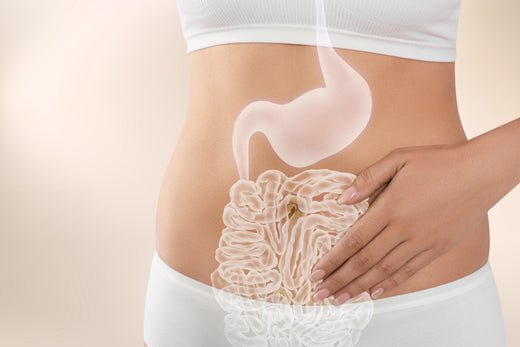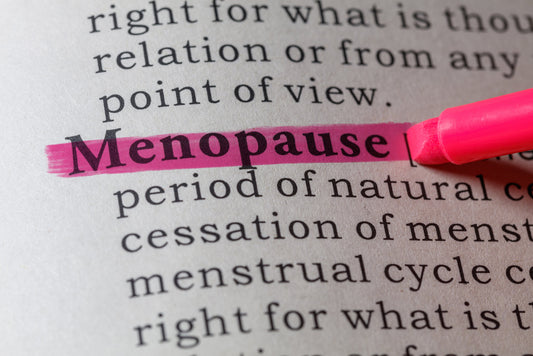Perimenopause, the transition leading up to menopause that can last up to eight years, can be a challenging time for many women to say the least. Fluctuating hormone levels can make you feel like you’re no longer your true self and cause a range of unpleasant symptoms, from sleep disturbances, to muscle cramps, mood swings and hot flashes. Fortunately, magnesium — an essential mineral involved in hundreds of bodily processes — can provide some relief for many of these symptoms. Supplementing with magnesium has been shown to improve sleep, reduce anxiety, and support overall health during perimenopause.
How Magnesium Supports Women’s Health During Perimenopause
Magnesium is essential for many functions in the body, including nerve and muscle function, hormone regulation, energy production, and the maintenance of bone health. During perimenopause, when estrogen and progesterone levels are in flux, magnesium becomes even more critical. Here are the key ways magnesium can help women navigate perimenopause:
-
Magnesium for Better Sleep and Relaxation
One of the most common and frustrating symptoms of perimenopause is disrupted sleep. Night sweats, hot flashes, anxiety, and hormonal changes can make it difficult to get a good night’s rest. Magnesium, often referred to as nature’s "relaxation mineral," can make a significant difference for women struggling with insomnia during perimenopause.
Magnesium helps regulate the production of gamma-aminobutyric acid (GABA), a neurotransmitter that calms the nervous system and promotes relaxation. By increasing GABA activity, magnesium can help women fall asleep faster and enjoy more restful, uninterrupted sleep. Magnesium glycinate, in particular, is highly recommended for improving sleep, as it is well absorbed and has calming properties without causing digestive issues.
If you’re dealing with sleep disturbances, supplementing with magnesium may provide the relief you need, helping to manage both physical discomfort and the emotional challenges that come with sleep deprivation.
-
Hormonal Balance and Symptom Relief
Constant hormonal fluctuations are the hallmark of perimenopause, and they can lead to a wide range of uncomfortable symptoms. Magnesium plays an important role in balancing hormones by regulating the production of key hormones like cortisol, which is associated with stress, and by supporting adrenal function.
For women experiencing mood swings, anxiety, or irritability during perimenopause, magnesium can have a stabilizing effect on mood. Research has shown that magnesium may reduce anxiety symptoms by modulating the body’s stress response. Low magnesium levels are often linked to increased stress and anxiety, making supplementation a natural way to help manage emotional changes during perimenopause.
Magnesium is also known to help alleviate common physical symptoms of perimenopause such as:
- Muscle cramps and tension: Magnesium helps relax muscles, reducing cramps and tension, which can become more frequent during perimenopause.
- Migraines and headaches: Hormonal shifts can trigger migraines for some women. Magnesium supplementation has been found to reduce the frequency and intensity of migraines in both perimenopausal and postmenopausal women.
-
Magnesium for Bone Health
Bone health is a significant concern for women as they approach menopause. As estrogen levels decline, women become more vulnerable to bone loss and osteoporosis. During perimenopause, magnesium helps in the absorption of calcium into the bones and plays a role in the activation of vitamin D, which is crucial for bone density. Regular magnesium intake can slow down bone loss and protect against osteoporosis, ensuring better bone health as you age.
-
Magnesium for Hot Flashes and Night Sweats
Hot flashes and night sweats are two of the most common and disruptive symptoms of perimenopause. While there’s no surefire way to eliminate them entirely, some research suggests that magnesium may help reduce the frequency and severity of these symptoms. Magnesium’s calming effects on the nervous system can be beneficial in managing hot flashes.
By reducing stress and promoting relaxation, magnesium may also help decrease the intensity of night sweats, leading to more restful sleep and improved quality of life during perimenopause.
-
Heart Health Support
Magnesium plays a vital role in cardiovascular health by supporting blood pressure regulation, heart rhythm, and overall cardiovascular function. Women going through perimenopause may experience an increased risk of cardiovascular issues due to fluctuating estrogen levels, which can affect blood vessel health and increase blood pressure.
Supplementing with magnesium helps relax blood vessels, improving circulation and reducing the risk of hypertension. Magnesium also aids in maintaining a healthy heart rhythm, which is especially important for perimenopausal women who may experience palpitations or irregular heartbeats.
How Much Magnesium Should Women Take Daily?
The recommended daily intake of magnesium for women varies by age, but during perimenopause, it’s particularly important to ensure adequate intake. The general guidelines are:
- Women aged 31 and older: 320 mg per day
- Pregnant or breastfeeding women: 350-360 mg per day
However, some studies suggest that women going through perimenopause may benefit from slightly higher doses to manage symptoms more effectively. It’s important to talk to a healthcare provider before starting a magnesium supplement or increasing your daily intake, especially if you’re taking other medications or have any underlying health conditions.
The Best Magnesium Supplement for Perimenopause
Choosing the right magnesium supplement is key to getting the most benefit during perimenopause. Here are the best magnesium supplements for women at this stage:
-
Magnesium Glycinate
Best for sleep and relaxation: Magnesium glycinate is highly absorbable and has calming properties, making it ideal for women dealing with sleep disturbances, anxiety, or stress during perimenopause. Its gentle effect on the stomach also makes it suitable for long-term use. -
Magnesium Citrate
Best for digestion and constipation relief: Magnesium citrate is well-absorbed and has a mild laxative effect, making it a good option for women who experience constipation during perimenopause. However, it can sometimes cause digestive upset in higher doses, so it’s important to find the right balance. -
Magnesium Malate
Best for energy and muscle support: For women experiencing fatigue or muscle pain, magnesium malate is a great option. It supports energy production and is often recommended for those dealing with chronic fatigue or fibromyalgia, which can worsen during perimenopause. -
Magnesium L-Threonate
Best for brain health: Magnesium L-threonate is known for its ability to cross the blood-brain barrier and support cognitive function. If you’re experiencing brain fog, memory lapses, or mental fatigue during perimenopause, this form of magnesium may help improve mental clarity and focus.
Does Magnesium Help With Perimenopausal Symptoms?
Magnesium is a powerful ally for women navigating the challenges of perimenopause. From improving sleep quality to supporting bone health and alleviating mood swings, daily magnesium supplementation can provide significant relief from the physical and emotional symptoms of this transitional phase.
When selecting a magnesium supplement, consider your specific symptoms and choose a form that aligns with your health needs — whether it’s magnesium glycinate for better sleep, magnesium citrate for digestive health, or magnesium L-threonate for cognitive support.
As always, it’s best to consult with a healthcare professional to determine the right dosage and form of magnesium for your body. With the right supplement, you can ease the discomforts of perimenopause and improve your overall well-being during this important stage of life.
![]()
BEST supplements are formulated with the most effective, science-backed ingredients out there, and nothing else. No fillers, no false promises, and no B.S.
Just the right doses, delivered the right way, with results that actually matter.
Because your BEST health starts with the BEST standards. And we’re here to deliver both.
*These statements have not been evaluated by the Food and Drug Administration. This product is not intended to diagnose, treat, cure, or prevent any disease.
FOOTNOTE:
https://pubmed.ncbi.nlm.nih.gov/20152124/









